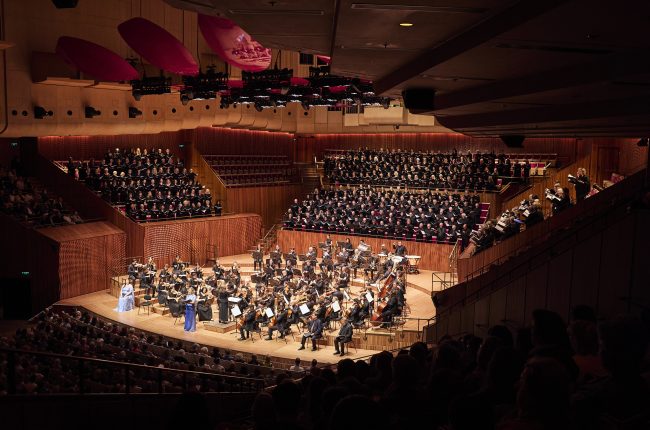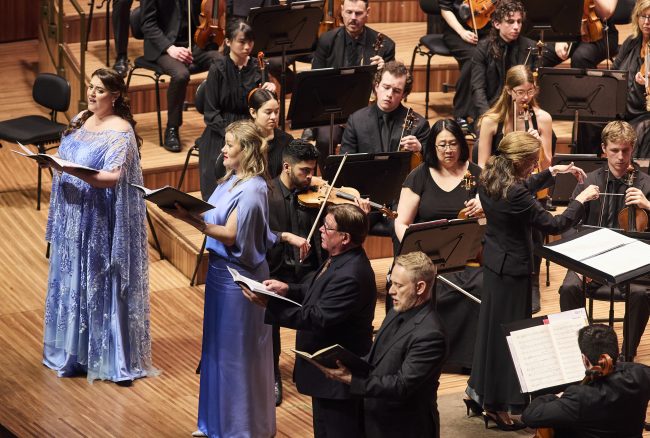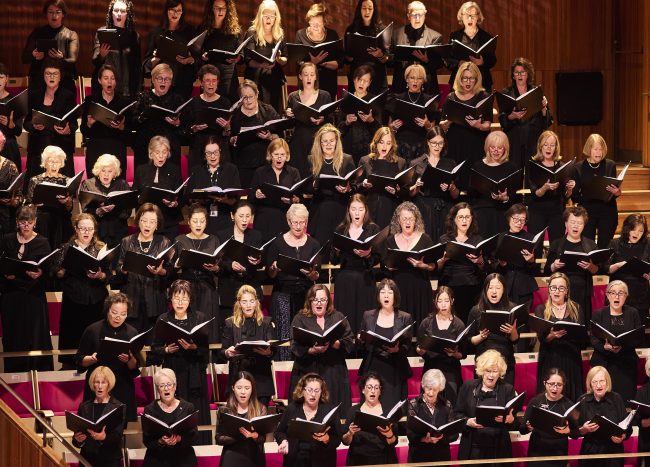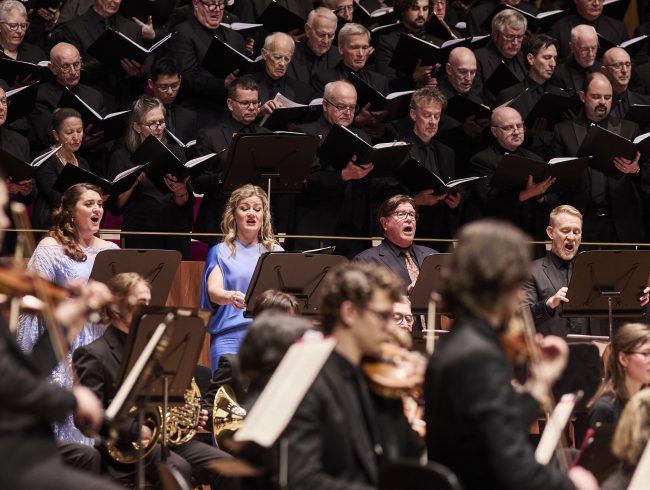
Saturday 26 October, 2024
Sydney Philharmonia Choirs Festival Chorus
Review by Paul Neeson (Arts Wednesday)
When a significant musical work lies largely dormant for over 100 years, the question begs “Is it any good?” Well, yesterday the Sydney Youth Orchestra and the Sydney Philharmonia Festival Chorus proved a century of symphonic programmers and curators wrong when it comes to Ethel Smyth’s Mass in D. While it has had the occasional champion over the years, the Mass only premiered in Australia in 2022. Brett Weymark and Elizabeth Scott (today’s conductor) have begun to set that right. The Sydney Youth Orchestra aided by some principal members of the Philharmonia Orchestra were equal to the task at hand, where enthusiasm sometimes more than made up for their lack of experience with the significant musical forces in this concert.

The opening Kyrie began ominously and quietly with the basses and soon built into a dramatic 400 voice explosion of sound worthy of dramatic comparison to Verdi’s Requiem. The subsequent Credo continued the drama with the four solo voices, Bronwyn Douglass (soprano), Helen Sherman (mezzo-soprano), Bradley Daley (tenor) and Michael Honeyman (baritone) rising above the orchestral forces in a spiralling counterpoint of melody reminiscent of Beethoven’s 9th which we were expecting later in the program. Another Beethoven technique in this work was the accelerando at the end of the movement building enough excitement to elicit a spontaneous applause from the house. If you’re going to emulate other composers, why not choose some of the greatest of all time?
It was only in the Sanctus that the overwhelming tutti volume dropped to a subdued and soulful sweet sound. In this section the inexperience of the Sydney Youth Orchestra was almost discernible as the solo mezzo-soprano voice became overwhelmed by the large brass section. The solo voice of the soprano shone in the extended Benedictus, as did the tenor in the Agnus Dei. But it was the force and joy of the Festival Chorus amassed around and behind the stage that carried the day. The Gloria, unconventionally placed at the end of the Mass, brought the 1st half to a thunderous conclusion.

Smyth thought that the wan reception of her music was due to ingrained prejudice against female composers. She was active in the suffragette movement and fought for equal rights for women throughout her life. In the 2nd half we heard her The March of the Women (Suffragette Song). A rousing anthem composed in 1910 while she was imprisoned for 2 months for her political beliefs, it became the theme song of the movement in England. Today’s performance did not hold back, the relish and gusto of the subject matter no doubt inspiring the musicians to greater heights. With the benefit of hindsight, her political activism would not have helped her music gain traction in the male dominated world of music. Fortunately for us the world has moved on and her work, like women’s rights have been restored to their rightful place.

And so to Beethoven. The Consecration of the House Overture was commissioned in 1822 around the same time he started composing his 9th Symphony, and there are some themes common to both. To my ears it sounded like a study for the larger and more famous Symphony, but being Beethoven still a beautifully crafted composition.
Ode to Joy, the title of today’s concert, was absolutely that – an expression of unbridled joy in the hands of the Sydney Youth Orchestra and the Festival Chorus. Like Ethel Smyth’s March of the Women, Beethoven set the words of Schiller to be easily remembered and sung by large choirs. And like Smyth’s anthem it is indeed a joy to sing. The tentative start in the winds with exposed entries and the difficult complex changes of time signature was soon forgotten as the massed choirs burst into song after a poignant recitative from baritone Michael Honeyman. I’m sure every voice in the hall (if only silently inside their heads) was singing with joy in an uplifting celebration of the joy of humanity.